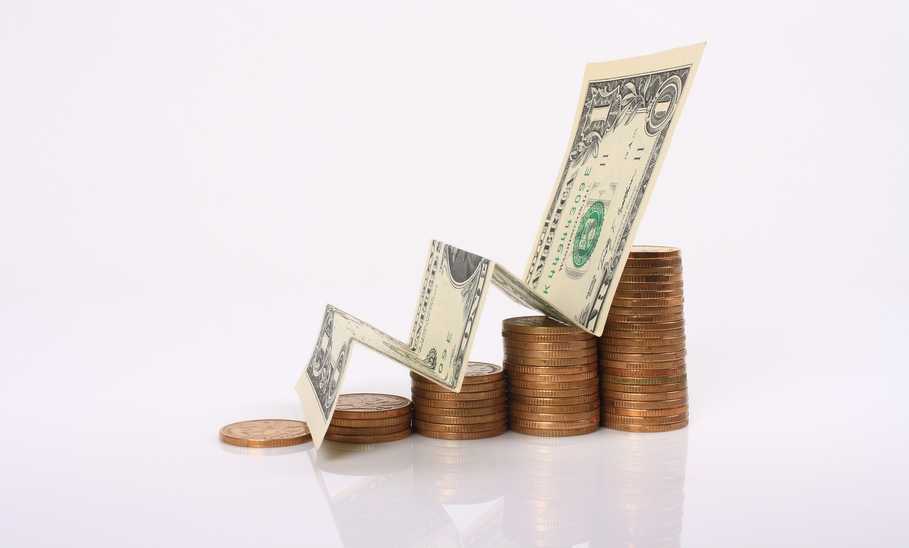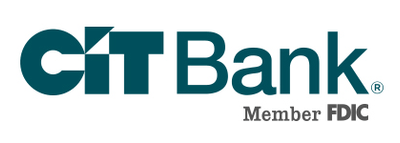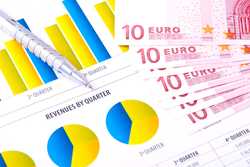CD Investments: How Much Can CDs Earn?

Our evaluations and opinions are not influenced by our advertising relationships, but we may earn a commission from our partners’ links. This content is created by TIME Stamped, under TIME’s direction and produced in accordance with TIME’s editorial guidelines and overseen by TIME’s editorial staff. Learn more about it.
A certificate of deposit (CD) is a savings account with which savers earn a fixed interest rate for a specified period of time. While you can’t withdraw funds before the maturity date without penalties, banks often offer higher interest rates on CDs than on traditional savings accounts, making them a good choice for earning more interest.
According to the Federal Deposit Insurance Corporation (FDIC), as of Sept. 18, 2023, the average interest rate for a 1-year CD is 1.76%, more than double the 0.45% average rate reported for savings accounts. The best CD rates, as you’ll see below, are considerably higher, with some APRs exceeding 5%. Here’s a closer look at how CD accounts work and how much you can earn from a CD investment.
CDs come with several major benefits, allowing you to save money at elevated interest rates without any risk of losses. With predictable earnings and virtually no risk, CDs are an attractive choice for savers who don’t want to risk their account losing value while earning interest rates above what you’d normally get from a savings account.
CDs are extremely safe, with government-backed insurance up to FDIC coverage limits, currently $250,000 per depositor per institution. That’s worth up to $500,000 for joint accounts. Even if the bank goes out of business, you’re guaranteed to get your money back up to those limits.
CDs may be less enticing in a rising interest rate environment, as you can lock yourself into a rate below average if rates rise. However, when rates are stable or falling you can lock your funds into a guaranteed rate that could be well above what’s available for new CDs.
If you don't withdraw early, CD returns are effectively guaranteed. Here are three main factors that influence your CD returns:
The interest rate is the main factor in determining your earnings. You can compare CDs, savings accounts, and other investments using annual percentage yield (APY). Even when banks use different compounding schedules, bonuses, and other perks, APY gives you an apples-to-apples comparison of how much you would earn over a year with the account’s current terms.
The length of time you save influences rates in two ways. First, you’ll earn more the longer you hold a CD. Obviously, at the same interest rate your total return is higher in six months than in three months. Banks are often willing to pay more if you lock your funds away for a longer term. Shopping around can help you find the best deal for various lengths of time.
Most CDs charge an early withdrawal penalty if you need your funds before the maturity date. Early withdrawals can be costly, as you usually lose out on a certain number of months of interest at your CD’s interest rate. If you’ve held the CD for a short period, your penalty could be more than the interest you’ve earned.
[placeholder for calculator]
CD interest is fairly simple to calculate. If you don’t have the calculator above handy, you can use this formula to calculate your earnings:
Interest Earned =
Initial Deposit (1+APY/Compounding Periods Per Year)(Compounding Periods Per Year x Number of Years) - Initial Deposit
That formula can be complicated, so you may be better off using a CD interest calculator..
CD rates can change anytime and often go up and down when the Federal Reserve raises or lowers its target interest rate. As of Sept. 18, 2023,, the average CD rates are 0.21% for a one-month CD, 1.37% for three months, 1.36% for six months, 1.76% for 12 months, 1.51% for 24 months, 1.38% for 36 months, 1.31% for 48 months, and 1.38% for 60 months.
Searching around the web as of Sept. 20, 2023, we found 12-month CDs with APYs as high as 5.50%, 36-month CDs with APYs as high as 4.75%, and 60-month CDs with APYs up to 4.65%. When choosing CDs for your cash, shopping around can help you home in on the best rates and terms.
Here’s a look at how much you would earn investing $2,500 in a CD at the current average interest rate for various maturity terms.
| Term | APY* | Deposit | Total value earned | Where to find this rate |
|---|---|---|---|---|
Three months | 2.00% | None | $12 | Discover® Bank |
Six months | 4.25% | $2,500 | $62 | Quontic |
12 months | 4.00% | $2,500 | $132 | Quontic |
18 months | 3.80% | None | $190 | Discover® Bank |
Two years | 3.35% | $2,500 | $230 | Quontic |
Three years | 3.25% | $2,500 | $345 | Quontic |
Four years | 3.40% | None | $425 | Discover®Bank |
Five years | 3.00% | $2,500 | $586 | Quontic |
Not all CDs have strict terms requiring an early withdrawal penalty or fixed interest rate. Some give you a little more flexibility.
For example, CIT Bank offers the 11-month No-Penalty CD. With this account you can withdraw early if needed and don’t have to pay any penalties or added fees.
In the past CIT Bank also offered the Ramp-Up CD, which allowed you to opt in to an increased interest rate if the bank’s rates increase. Unfortunately, as of August 2023 the product was unavailable to new accounts.
If you’re looking for the safety of a CD without the same commitments, consider one of the following alternatives to CDs:
A high-yield savings account (HYSA) is a savings account with above-average interest rates. Often found with online-only banks, some HYSAs pay as much as you can earn with a CD, but there’s no early withdrawal penalty.On the other hand, if interest rates drop, that high interest is not guaranteed for a specific period, as is true with CDs.
Money market accounts (MMAs) are a type of savings account with some of the benefits of a checking account. With many MMAs you get the convenience of check-writing abilities with the above-average interest rates of a savings account. In some cases MMAs pay more than traditional savings accounts. Again, the interest rate can change at any time..
Savings bonds are a long-term investment available directly from the United States government. You can get them online through the United States Treasury’s website, TreasuryDirect, or as your tax refund when filing your annual tax return.
Savings bonds start at $25 and earn interest for up to 30 years. Series EE bonds are guaranteed to double in value in 20 years, while I bonds come with inflation protection.
CDs come with almost no risk and often earn interest rates above what you can earn from a regular savings account. While you have to commit to leaving your money in the account for a certain period of time, they’re often a smart investment when you know you won’t need the funds and don’t want to risk losses.
You can earn 5% from certain CD accounts where available. We found several CDs offering 5% APY or higher with a term of six months to two years.
The earnings from a $10,000 CD vary based on the interest rate. Try our CD calculator above to determine what you would earn with varying terms and interest rates.
Good interest rates for CDs change over time. Researching the best CD rates is a good idea when shopping for a new CD account.
CD accounts are extremely safe. Funds are backed by the FDIC for up to $250,000 per depositor per institution. You can get up to $500,000 in government-backed insurance for a joint CD account.
The only way to lose money with a CD is to withdraw it early, when penalties may apply. You generally only lose money if you withdraw it very early in the CD’s term. If you hold a CD until maturity, you won’t lose money.
Most CDs come with a fixed term and interest rate. However, you may find CDs with no penalties or CDs that let you increase your interest rate when market rates rise.
The information presented here is created by TIME Stamped and overseen by TIME editorial staff. To learn more, see our About Us page.




